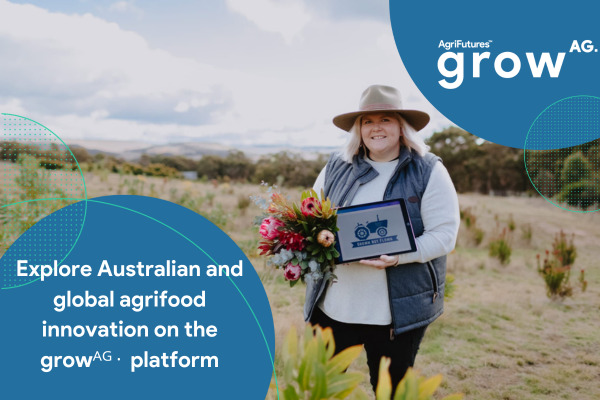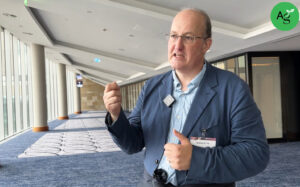North Carolina-based biotech startup Resilient Biotics has raised $7.1 million in a Series A round co-led by Berkeley Catalyst Fund and Fulcrum Global Capital.
Other investors joining the round included Elanco Animal Health, Innovation in Motion, and Viking Global Investors.
Founded in 2017 by microbiologist Christopher Belnap and data scientist Greg Werner, Resilient Biotics has built a drug discovery platform which can identify and validate microbiome-based biotherapuetics for the prevention and treatment of respiratory infections in animals.
Part of the growing movement away from traditional antibiotics, the startup wants to bring more certainty and reliability to the still-nascent area of livestock biotherapeutics, which is dominated by direct-fed microbials (DFMs) – live micro-organisms added into animal feed.
“They are analogous to a probiotic-type of product. Although generally believed to be beneficial to the animal’s digestive track and immune system, the impact of DFMs on the health of an animal is not well understood,” Belnap told AFN.
“They are a bit of a black box in terms of how they work, which makes assessing their benefit difficult. In contrast, our approach aims to understand who the beneficial microbes are as a first step, and then understand exactly what they do. This enables us to not only develop more effective products, but also communicate to future customers the rationale and data behind how the products work.”
Resilient’s discovery process combines bioinformatics and machine learning tools to parse through complex microbiome datasets and identify new microbial strains that can promote health and productivity. The startup then validates these strains to optimize for the best microbial formulation for a given context.
“This approach allows us to target new microbial leads that impact pathogen colonization or infectivity, as well as those microbes that are linked to host immune system priming and activation,” Belnap explained.
“We want to know which strains actually matter, and understand if these can be developed as products.”
Resilient’s flagship offering is an intranasal, non-antibiotic treatment to prevent bovine respiratory disease (BRD), an infection caused by bacterial and viral pathogens that is among the leading causes of illness and death in domesticated cattle. The product — named RBX001 — has shown “very promising” results in pre-clinical studies, Belnap said.
“BRD has been a longstanding challenge in cattle production for decades, and antibiotics are still heavily relied upon to control BRD pathogens. Producers constantly cite BRD as one of their main concerns, and wish there were better prevention and treatment options available – so the market need is clearly there,” he added.
“Scientifically, evidence has been building over the past few years indicating the importance of the commensal microbiome and its role in promoting host health in the respiratory tract. We see microbiome products targeting respiratory diseases as an immense opportunity, and especially within animal health where just about all production systems are impacted by respiratory pathogens.”
Beyond this, Resilient is exploring potential therapuetics for swine and poultry – both of which experience high morbidity and mortality due to respiratory diseases, according to Belnap.
“Like cattle, there is an opportunity to introduce new, microbiome-based products that can supplement or even replace certain uses of antibiotics,” he said.
“Swine, in particular, is a huge opportunity because pigs can be heavily impacted by both viral and bacterial pathogens. PRRS [porcine reproductive and respiratory syndrome, also known as blue ear disease] is the prime example. Utilizing the microbiome to help reduce susceptibility to, and severity of, these diseases is a really exciting area of research, and Resilient is perfectly positioned for [it].”
The startup will use the proceeds of its Series A round to continue development of RBX001, as well as to expand product development around similar non-antibiotic, microbiome-derived products for other animals. Belnap reports that his team already has a second product in development, with a third in the planning stages.
In a statement, Fulcrum Global Capital partner John Peryam said that Resilient aligns with his firm’s view of the livestock industry’s need to “move into more platform-based solutions that drive improved business outcomes for the producer, while also delivering on growing consumer expectations regarding food safety and traceability.”
“We believe Resilient’s platform technology will be a game changer in the pursuit of replacing antibiotics while controlling respiratory disease challenges in livestock production systems,” he added.
Comment? News tip? Story idea? Email me at [email protected] or find me on LinkedIn and Twitter















Sponsored
Sponsored post: The innovator’s dilemma: why agbioscience innovation must focus on the farmer first